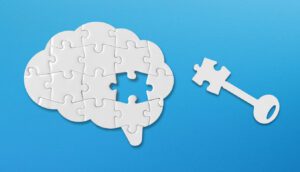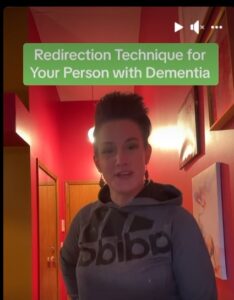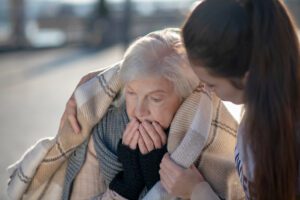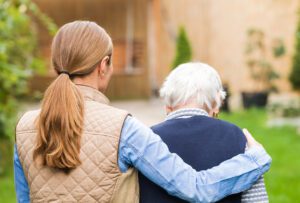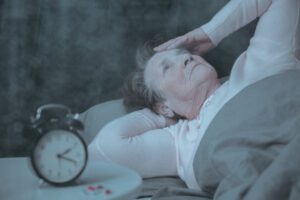Alzheimer’s Topics
Weighted Blankets for Dementia Improve Sleep and Reduce Anxiety
Common side effects among older adults suffering from Alzheimer’s or dementia include anxiety, agitation, and disturbed sleep. One simple, non-drug solution that can help with all three symptoms is a weighted blanket or lap pad. It can be used day or night to provide comfort, reduce anxiety, promote deep sleep, and calm nerves. Though it…
Read MoreWhat’s the Difference Between Alzheimer’s and Dementia?
Although the words “Alzheimer’s” and “dementia” are often used interchangeably, they aren’t quite the same thing. It’s important to know the differences between their symptoms and how they progress, so you can find more effective ways to manage symptoms and make more informed care decisions for your loved one. Dementia is an umbrella term for…
Read MoreHow Reminiscence Therapy Can Help Seniors with Dementia
Those suffering from dementia typically lose their short-term memory, but often can still recall memories from longer ago. That’s why reminiscing, or sharing memories from the past, can be such an enjoyable way to connect with these seniors. It helps them feel valued, content, and peaceful by recollecting happier times from bygone days. Because it’s…
Read MoreVideo Tips: Redirection Technique for Your Person with Dementia
If your person with dementia is trying to leave the house or go into a particular room that you don’t want them to, here is a redirection technique you can use: Try to distract the person with an object (flowers, a painting, an animal) or question that grabs his or her attention. Ask that person’s…
Read MoreHow to Talk to Someone with Alzheimer’s
Those suffering from dementia or Alzheimer’s experience changes in their brains that affect their ability to listen, understand, and respond to normal conversation. It’s important to meet the person where they are, because once that piece of the person’s brain has stopped working, it will never return to the way it was before. They can…
Read MoreHow to Respond to Dementia Delusions
Dementia or Alzheimer’s disease can cause many delusions, leading to false accusations and beliefs. While there are indeed some cases of real senior abuse, most cases of accusation are simply not true. That doesn’t make them any less painful, however. It can be very difficult to hear your older adult accuse you of doing horrible…
Read MoreVideo Tips: What to Do When Your Person with Dementia is Looking for Someone Who is No Longer Living
It can be challenging to know what to do when someone with dementia is searching for someone who is no longer alive. When we continue to remind them over and over again that the person has died, it is as if they are experiencing the grief of loss repeatedly. This approach is painful for them.…
Read MoreWhen Someone with Alzheimer’s Says They Want to Go Home
It’s not uncommon for those suffering from Alzheimer’s to repeatedly tell a caregiver that they want to go home. This can be incredibly frustrating when the person is already at home. It’s essential for caregivers to understand that individuals aren’t necessarily asking to be taken somewhere but are instead yearning for comfort. Due to the…
Read More5 Tips to Improve Sleep in Dementia
Those suffering from dementia or Alzheimer’s often experience poor sleep, including frequent waking, troubled sleep, or being awake at night. That’s because dementia causes changes in the brain related to sleep. In fact, as many as seven out of 10 people with dementia experience sleep issues, according to the Centers for Medicare and Medicaid Services.…
Read MoreHow to Respond to Repetitive Questions in Dementia
Because Alzheimer’s or other forms of dementia cause problems with short-term memory, those suffering from it tend to repeat the same thing over and over. This can, unfortunately, become a significant source of stress for caregivers, who may be tempted to snap in frustration eventually. It’s important to realize that the older adult isn’t doing…
Read More

